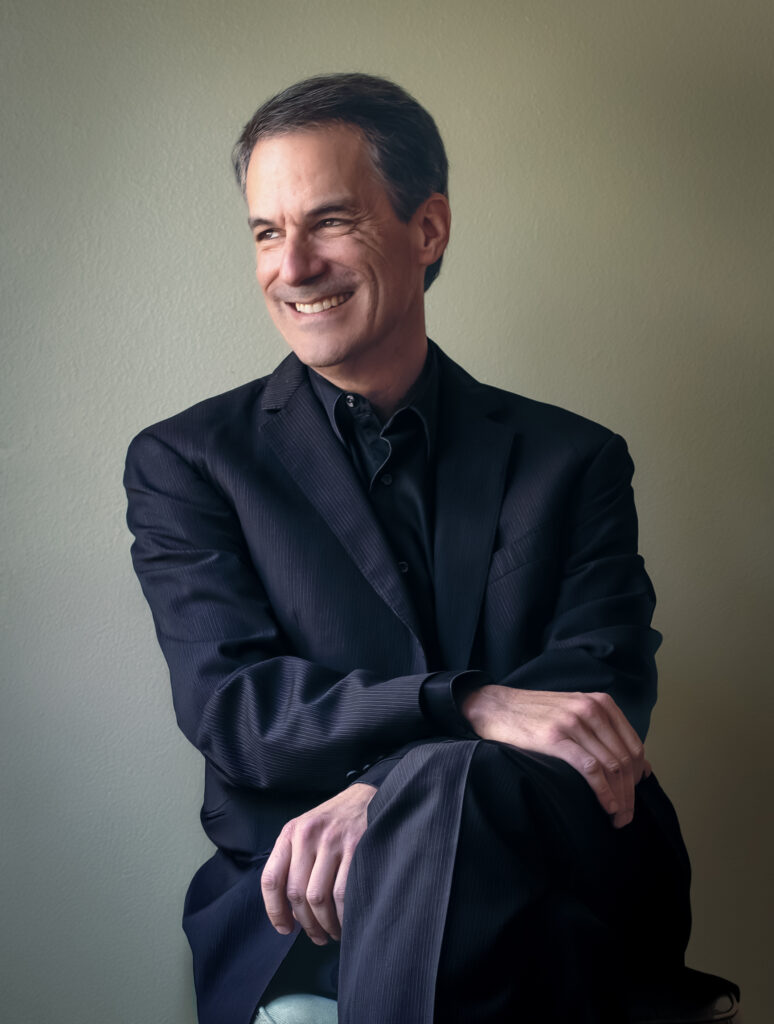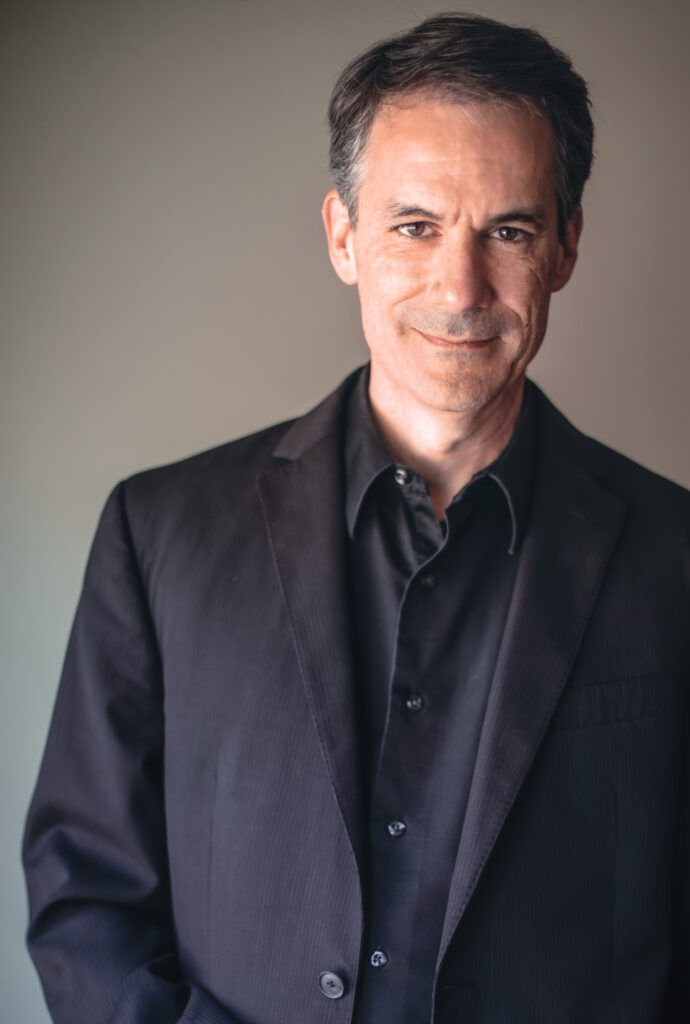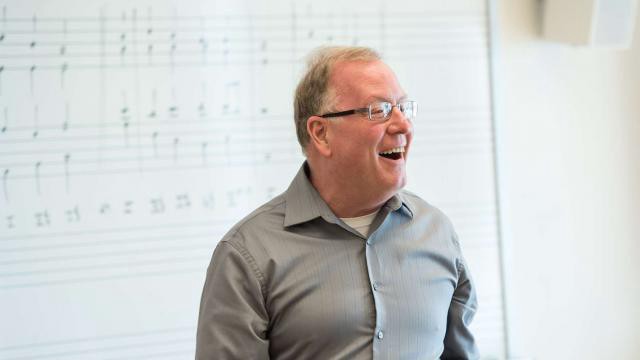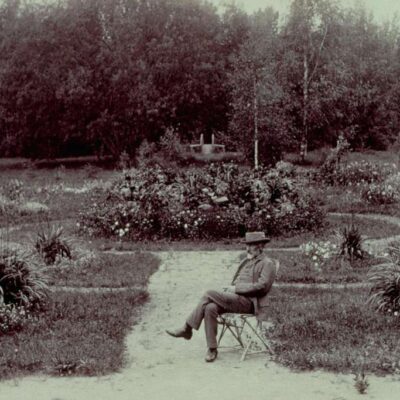
Robert Thies shot to fame in 1995 when he became the first American in four decades—since Van Cliburn’s Cold War win in 1958—to win a Russian piano competition, but things didn’t quite work out as planned… Robert talks with us ending up at zero after his feted win and looking forward to performing Mozart’s Piano Concerto No. 21 at BEETHOVEN’S EROICA in the 2025/26 season.
First things first, how is your name pronounced? 🙂
I know people can be intimidated by this. It is pronounced like “Theece”—rhymes with peace.
Tell us a little about yourself.
I grew up mostly in the Los Angeles area. I went to USC for a Bachelor’s and Master’s degree, and I stayed in Los Angeles following graduation. Now I live in a suburb called Santa Clarita. My father was an amateur jazz musician, and enjoyed playing in big bands throughout his life. But classical music was largely a self discovery for me, with the guidance of some excellent teachers of course.
How do you and Donato know each other?
Donato was a guest conductor with the New West Symphony some years ago and I played an featured piano part to a piece by John Adams. We bumped into each other a couple times after that, and he was kind enough to take an interest in my solo career.
A pianist of unerring warm-toned refinement, revealing judicious glimmers of power.”
– Los Angeles Times
Tell us about winning the Gold Medal at the 2nd International Prokofiev competition in St. Petersburg, Russia in 1995.
Well, unsurprisingly this event became one of the most important and treasured experiences of my early career. The competition occurred in December 1995, so the Neva River in St. Petersburg was iced over. It was cold, dark, and stark economically as it was a few years after the fall of the Soviet Union. Food was scarce, and I lost 8 lbs in those 12 days I was there.
I performed 3.5 hours of the most demanding repertoire I had yet learned, including pieces like Prokofiev’s 2nd Piano Concerto, Sixth Sonata, Ravel’s Gaspard de la Nuit, and Stravinsky’s Trois mouvements de Petrouchka. Most of my competitors were Russian or from former Soviet Republics (ie: Ukraine, Georgia, etc.) When it was time to go home, I was pulled into a private hotel room to be paid the grand prize in cash. They gave me only 80% of the posted 1st prize money, the rest being for Russian “taxes”. Any return concerts and recordings promised to me were rescinded as Russia didn’t even have enough money to post my airfare. Another irony: because I thought I was going to spend a year studying in Vienna prior, my parents sold my car to my roommate for $500, so I was without a car in Los Angeles. I used all of my prize money to purchase a used car, and so financially I was back to “zero”.
Winning this competition did not launch an international career the way it did for Van Cliburn in 1958, as there was no Cold War happening. While I garnered some interest locally, the experience taught me that winning an international competition no longer jumpstarts a career.
What should audiences listen out for in the piece you’ll be playing?
I once heard someone say that playing a concerto by Mozart is the closest we pianists come to singing opera. Considering the love Mozart had for this instrumental idiom as a solo vehicle, it is logical to recognize the significance and highly expressive nature of this music. Opera was still the pinnacle form of expression for Mozart, and so the lyrical and sometimes playful qualities of operatic writing would infuse his instrumental writing too. Mozart completed the C Major Concerto just a month after his stormy, operatic D minor concerto. Taken as a pair, the two pieces inhabit a complete opera, full of tragedy, drama, comedy, and beautiful lyricism throughout. If the earlier concerto foreshadows the drama of Don Giovanni, the C Major Concerto reminds us more of the opera buffa, Marriage of Figaro, premiering just a year later. In this and his other piano concerti, the orchestra serves as a co-protagonist in the storytelling. The combination of playful exchanges between soloist and orchestra in the outer movements, and the gorgeous vocal qualities of the beloved 2nd movement contribute to making this one of the most inspired works he gave us.

You currently live in L.A. Have you worked on any film scores we might know?
Yes, a few years ago I played the celesta solos in John Williams’ intimate score to Spielberg’s autobiographical film The Fabelmans. I also played on the last Indiana Jones film. Other film scores that I recorded that featured piano include the Anthony Hopkins 2007 film Fracture, the Will Smith 2015 film Concussion, and the 2018 film: Fifty Shades Freed.
Do you have a message for our patrons?
I can’t wait to play with Donato and the California Symphony and share this rarely performed work of Clara Wieck (Schumann)!
Robert Thies performs Wolfgang Amadeus Mozart’s Piano Concerto No. 21 at BEETHOVEN’S EROICA, Saturday, November 15 at 7:30 PM and Sunday, November 16 at 4 PM at the Lesher Center for the Arts in Walnut Creek. 5-concert subscriptions for the 2025/26 season are available now.


